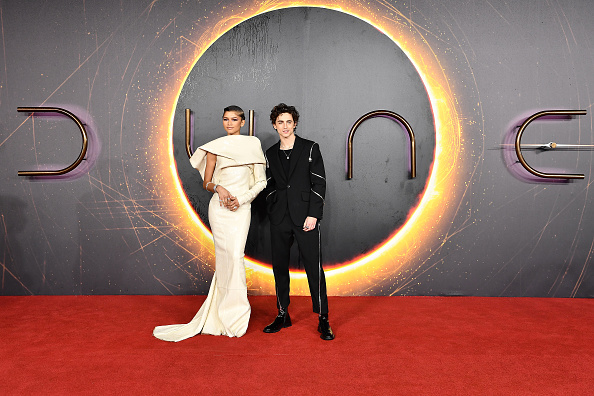Over the course of the 2010s, Science fiction films have, for a long time, been hit or miss (with a lot of misses). For every inception, ex-Machina, interstellar, Intertops casino bonus, or Bandersnatch, there are a hundred mediocre science fiction films that leave me disappointing, if not outright nauseous. Established science fiction franchises haven’t had a good time of it either. Disney Star Wars had the average sequel trilogy.
CBS produced the downright awful STD, Picard, and the bamboozling Lower Decks- and they look like they have no interest in stopping. Skydance Media has churned out awful Terminator sequel after Terminator sequel, much to everyone’s chagrin. Ghostbusters got its awful sequel/reboot thing, and that’s best left forgotten. Meanwhile, franchises like Jurassic Park have become big monster movies without Spielberg’s skill to bring them together. Ridley Scotts Alien has, unfortunately, suffered a similar fate.
Yet despite all that, when the trailer for Dune dropped, I was cautiously optimistic. The special effects looked amazing, the cast list features some incredible talent, and the director actually seemed to care about creating a true adaptation about Dune. Still, trailers can be misleading.
Spoiler alert: I was immensely pleased.
The Premise (Spoiler Free) – The Spice Must Flow!
If you’re not familiar with this science fiction classic, then you really have missed out. It’s far easier to get into that Asimov’s work, in my opinion, if you’re already used to reading modern fantasy series like The Stormlight Archive or Lord of the Rings.
Frank Herbert’s “Dune” was originally released in 1965 and is a huge inspiration to all sorts of famous fiction franchises, including Star Wars, Star Trek, and every Space Oprah written since.
The story follows Paul Atreides, heir to House Atreides, in the midst of a period of change. The Emperor has recently revoked control of the rich desert planet of Arrakis from House Harkonnen and granted it to Leto Atreides, Paul’s father. This is considered both an immense honor- but a dangerous one.
If the Atreides can’t get the production of the valuable Spice up and running in time, the Emperor could use it to justify harsh retribution against the House. Meanwhile, Paul has to grasp the fact that he’s experiencing strange visions- visions of people and places he’s never been to and of people he’s never met. Visions… that have a habit of coming true.
The Movie – What does it cut?
“Dune”, the book, is an immensely complex story with an enormous cast of paranoid characters, each plotting the other’s demise. There are numerous factions and agendas constantly at play, and saying the wrong words at the wrong time can bring down entire Houses.
There are the enigmatic Bene Gesserit women (whom Paul’s mother Jessica ranks among), the Space Guilders, the blue-eyed Fremen, smugglers, and Imperial Agents all vying for dominance with grand, thousand-year schemes.
One of Dune‘s most important facets is the world building of the desert world of Arrakis. Frank Herbert was a climate consultant, and so really knows his stuff, and he carries that knowledge over into his alien world so that in spite of the giant monsters, Arrakis feels like a world that could exist.
The point is, that’s a lot of information for a reader to absorb, much less a movie-goer.
That’s why I found it an immense surprise when, after I watched through, Dune, I saw just how much they were able to keep in. With so much going on, I assumed that they were going to cut out a lot of it or otherwise release a three-and-a-half-hour movie. Since they did neither without losing much (if any) of the major plot points, I’ll call that a win.
In fact, there are only one or two minor plot points that I even noticed were removed, and I have no complaint about them (one of them was Leto Atreides suspecting someone of being a traitor who wasn’t, and it doesn’t really play into the rest of the story. The other was a room full of plants that two characters have a conversation in, that’s removed entirely).
On the other hand, that still means that there’s a load of information that gets thrown at a new viewer. While the movie is very clever in showing, rather than telling, whenever it can, terms like Kwisat Haderech, Bene Gesserit, Krisknife, or Gom Jabbar, on top of all the names of characters that need to be introduced, on top of the ins and outs of the various gadgets and technologies that need to be explained, is probably overwhelming for someone who hasn’t read the book.
I’m immensely happy that what was kept, it was kept in. However, I hope that the information overload doesn’t turn people away though.
The Aesthetic
One of the things that struck me almost immediately after the movie began was the aesthetic. If this movie nailed anything, it’s the aesthetic. Everything looks amazing, from the special effects to the costumes to the characters.
One of the things I was worried about when going into this movie was the aesthetic of the technology would simply be the generic, overly clean look and style that’s nauseatingly common in Netflix sci-fi. (the one that I was first introduced to in J.J. Abrams Star Trek movies, which carried over into STD and Picard).
But that’s not the case here. The technology looks unique, the spaceships are all massive and weird, and the costumes of the various factions are all detailed and distinct. One of my favorites, right at the beginning, is the look of the Space Guilders that are shown in the background of one scene.
They have these massive orange helmets with these ornamental space suits that just look so neat. The Atreides all wear these imperialistic military uniforms that feel straight out of the 1930s (in a good way, I swear!).
The villains all dress inappropriately menacing outfits, either solid black or imposing body armor. A lot of modern films and fiction try too hard to go for morally gray villains and heroes, and like the color gray itself, the villains end up just being bland. That’s not the case here, with all the villains being cartoonishly evil and over the top, and it’s awesome.
That being said, there is something unique about the 1980’s Dune that could only have been made through the lens of pulp sci-fi, and practical special effects could produce. Those sorts of films were popular at the time, like Total Recall or Robocop. On the other hand, that movie just wasn’t very good, so while I’m glad it exists, I’m also glad the director didn’t follow the direction of that movie.
The Foil
They say a story about a hero is only as good as its villain, and Dune thrives off its villains. First and foremost, there’s the environment itself. The planet Arrakis is so harsh and threatening, it might as well be its own villain.
However, the more traditional villain is the Baron Harkonnen. I was very worried about how the movie was going to handle this character. On paper, he sounds absurd. He’s mustache twirlingly evil, immensely paranoid, and comically fat. Like, so fat he uses anti-gravity technology to assist his walking. He’s ludicrous, and if he wasn’t immensely wealthy, it would be hard to see why anyone would fear or obey him.
So I had my worries. I worried that the movie would reduce how fat he is, to try and make him scarier. I worried that the movie would dive in to move into his ludicrous aspects and play him as a joke. Basically, I was worried that in an attempt to make the Baron a scarier villain, the movie would remove all the iconic things that makes the Baron such a great villain.
And gosh darn it, I was blown away by the depiction of the Baron! He’s as fat as described, with his anti-gravity assistance for walking, paranoid, evil, and has a voice that sounds like he lights gravel on fire and gargles with it every morning. He’s everything I hoped he would be, and more.
The Soundtrack – Dune 2021
Every scene has this orchestral majesty to it. Every time Paul looks out a window at the desert, this sense of ominous magnitude of events is made clear through a powerful soundtrack. Far too many movies use generic songs that just sort of match the mood of whatever scene is happening (sad violins during sad scenes). Dune takes every moment and adds existential dread and majesty through the sheer intensity of the music. And it’s awesome.

Conclusion
Dune 2021 is perhaps one of the best Science Fiction adaptations I have ever seen and certainly one of the best adaptations (and science fiction movies in general) I have seen in a long time. It’s immensely faithful to the story it’s adapting, and I applaud it. Far too many studios and directors look at books as their next payday rather than a beloved work to be brought into another medium.
The nitpick that actually does annoy me has something to do with one of Paul’s visions. This IS a spoiler, so for all intents and purposes, this review is over at this point. Go watch Dune.
Alright, so my nitpick is that in the novel, Paul has a vision of the future where he takes over and becomes Emperor. He does so with the help of the Fremen, who develop an entire religion around him. Unfortunately, no matter what he doesn’t, he ends up being unable to stop the Fremen from launching a holy war across the galaxy in Paul’s name, which will leave billions dead as a result. In the book, he exclaims as multiple points about the “Jihad that will rage across the universe”.
9/10 – Amazing adaptation. Stunning visual effects. There’s a bit of information overload, but as a fan, I loved it. It ended too soon.
More From LWOS Life
Make sure to stay tuned to LWOS Life for more on this and other stories from around the world of entertainment, culture and more, as they develop. You can always count on LWOS Life to be on top of the major news in the world of entertainment; whilst also providing you with editorials on everything from beer to movie reviews.
Featured Image Credit:

